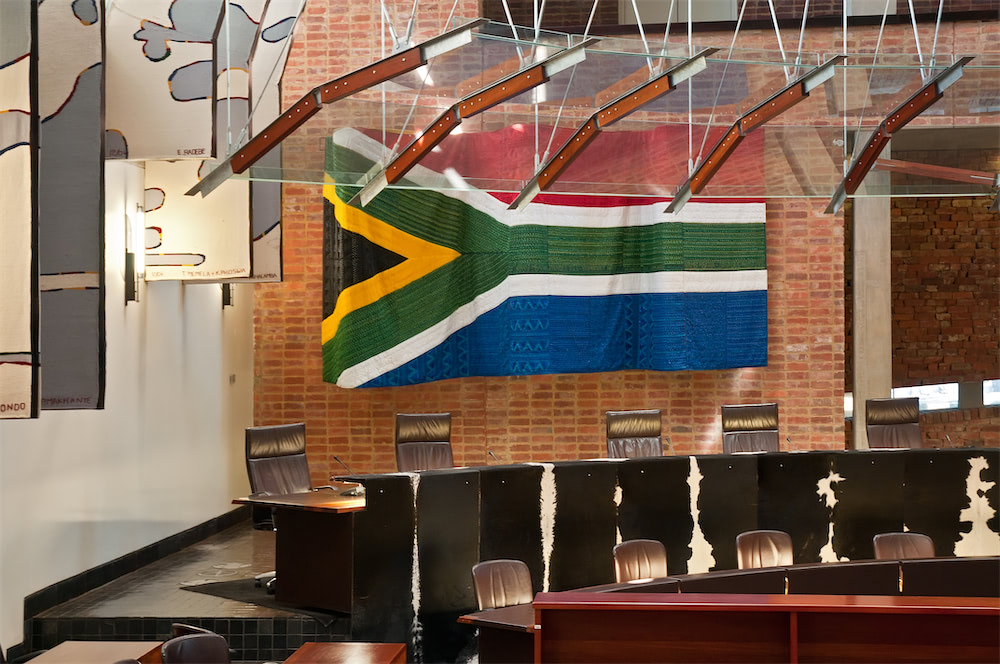

CCMA Arbitrations
It happens, every now and again, that an employer and an employee just don’t see eye to eye. This can happen for any number of reasons and the fault can sit at the feet of either of the parties.
Sometimes it results in the employee leaving - or being made to leave - the employ of the now erstwhile employer. This can be met with some animosity by the employee. Sometimes it’s understandable and other times it’s confusing for the very fact that the employee has his/her/their lines crossed.
What’s clear is that in most cases some help will be required to settle the dispute – whatever it may be.
And this is where the CCMA steps in.
What is the CCMA?
According to the Department of Employment and Labour -
The Commission for Conciliation, Mediation and Arbitration (CCMA) was established in terms of the Labour Relations Act, 1995 (LRA) as amended. It is mandated to promote social justice and fairness in the workplace by delivering ethical, qualitative, innovative, and cost-effective dispute and resolution services, institution building services, education, training and development and efficient administration.
The CCMA's compulsory statutory functions are to:
- Conciliate workplace disputes;
- Arbitrate certain categories of disputes that remain unresolved after conciliation, establish picketing rules;
- Facilitate the establishment of workplace forums and statutory councils;
- Compile and publish information and statistics about CCMA activities;
- Accredit and consider applications for subsidy by bargaining councils and private agencies, and
- Provide support for the Essential Services Committee.
What is an arbitration?
According to the arbitration info sheet and the CCMA website-
An arbitration is a formal hearing – which usually follows after a conciliation hearing has been unsuccessful - where a commissioner gives both parties an opportunity to present their cases regarding the issue in dispute by leading evidence, presenting documents, cross examination of witnesses, and even conducting an inspection of premises (where necessary).
The arbitrator will then consider the evidence and arguments put before him/her/them and apply the appropriate legal principles towards making a finding in the form of an arbitration award.
Thus, unlike conciliation - where it’s the parties that decide on how they are going to resolve the dispute - arbitration gives those powers to the arbitrator, who under Section 138 of the LRA decides on the procedure to be followed – always being mindful by ensuring that the hearing is conducted with the minimum of legal formalities applied, while also ensuring that each party is given a fair opportunity to present their case.
A party has 90 days within which to refer the unresolved conciliation dispute to arbitration from the earlier of the date on which conciliation remains unresolved, or the 30-day conciliation period has expired. Failure to adhere to that time-frame will cause the referral to be late and for a condonation application to be required before that referral can be considered.
It’s important to note that while an arbitration follows a conciliation, it’s a new hearing regarding the issue in dispute which led to the challenging of the employer’s decision. A commissioner will consider the fairness of an employer’s decision on the evidence presented and submissions made at the arbitration.
Con-arb hearings
In some instances, under Section 191(5A) of the LRA the arbitration hearing may follow the conciliation hearing on the same day. This is known as a con-arb (conciliation / arbitration) hearing. Con-arb hearings are compulsory for a dispute relating to the dismissal of an employee for any reason related to –
- probation or;
- an unfair labour practice relating to probation or;
- a dispute relating to a compliance order referred to in terms of section 69(5) of the Basic Conditions of Employment Act (the BCEA); or
- a claim for failure to pay any amount owing referred to in terms of section 73A of the BCEA.
If no objection is received from the parties, this process may be used for other disputes such as –
- dismissals for misconduct; or
- incapacity; or
- where the employee resigned because the employer’s conduct made continued employment intolerable; or
- due to less favourable terms after a s197 or s197A transfer; or
- for dismissals where the reason for dismissal is unknown; or
- an unfair labour practice other than if the unfair labour practice deals with an act or omission linked to the Protected Disclosure Act.
Can a party be represented by legal representation during an arbitration?
According to Rule 25 of the CCMA Rules –
- Representation before the Commission
(1)
(a) In conciliation proceedings a party to the dispute may appear in person or be represented only by—
(i) if the party is an employer, a director or employee of that party and, in addition, if it is a close corporation, a member of that close corporation;
(ii) any office bearer, official or member of that party’s registered trade union or registered employers’ organisation;
(iii) if the party is a registered trade union, any office bearer, official or member of that trade union authorised to represent that party; or
(iv) if the party is a registered employers’ organisation, any office bearer or official of that party or a director or employee of an employer that is a member of that employers’ organisation authorised to represent that party.
(b) Subject to paragraph (c), in any arbitration proceedings a party to the dispute may appear in person or be represented only by—
(i) a legal practitioner; or
(ii) an individual entitled to represent the party at conciliation proceedings in terms of subrule (1)(a).
(c) If the dispute being arbitrated is about the fairness of a dismissal and a party has alleged that the reason for the dismissal relates to the employee’s conduct or capacity, a party is not entitled to be represented by a legal practitioner in the proceedings unless—
(i) the commissioner and all the other parties consent;
(ii) the commissioner concludes that it is unreasonable to expect a party to deal with the dispute without legal representation, after considering—
(a) the nature of the questions of law raised by the dispute;
(b) the complexity of the dispute;
(c) the public interest; and
(d) the comparative ability of the opposing parties or their representatives to deal with the dispute.
(d) No person representing a party in proceedings before the Commission in a capacity contemplated in paragraph (a) or (b), other than a legal practitioner contemplated in paragraph (b)(i), may charge a fee or receive a financial benefit in consideration for agreeing to represent that party unless permitted to do so by the Commission.
(2) If the party to the dispute objects to the representation of another party to the dispute or the commissioner suspects that the representative of a party does not qualify in terms of this Rule, the commissioner must determine the issue.
(3) The commissioner may call upon the representative to establish why the representative should be permitted to appear in terms of this Rule.
(4) A representative must tender any documents requested by the commissioner for the purposes of subrule (2), including constitutions, payslips, contracts of employment, documents and forms, recognition agreements and proof of membership of a trade union or employers’ organisation.
(5) Despite the provisions of subrule (1), a commissioner may exclude any person who is representing a party in any proceedings on the basis that they are a member of the same employers’ organisation as an employer party, or a member of an employers’ organisation that is a party to proceedings, if the commissioner, after enquiring into the matter and considering relevant representations, believes that—
(a) the representative joined the employer’s organisation for the purpose of representing parties in the Commission; or
(b) the representative’s participation in the dispute resolution process—
(i) would be contrary to the purpose of the rule which is to promote inexpensive and expeditious dispute resolution in a manner that is equitable to all parties;
(ii) is not in keeping with the objectives of the Labour Relations Act 66 of 1995; or
(iii) may have the consequence of unfairly disadvantaging another party to the dispute.
To be clear, a legal practitioner and a candidate attorney may automatically represent a party as follows –
- In all in limine hearings, irrespective of the nature of the underlying dispute;
In all arbitration hearings other than:
- dismissals based on conduct;
- dismissals based on capacity (performance or ill health);
- referrals in terms of section 69(5) [where an employer refers a dispute concerning a compliance order that was issued against that employer in terms of section 69 of the BCEA, to the CCMA];
- section 73 of the BCEA [to have a compliance order made an award]; and
- section 73A of the BCEA [claims for failure to pay any amount owing in terms of the National Minimum Wage Act 2018, a contract of employment, a collective agreement, or sectoral determination].
Where representation by a legal practitioner and candidate attorney is not automatically permitted at arbitration, the presiding commissioner may allow such representation if -
- the commissioner and all the other parties consent;
- the commissioner concludes that it is unreasonable to expect a party to deal with the dispute without legal representation, after considering –
- the nature of the questions of law raised by the dispute;
- the complexity of the dispute;
- the public interest; and
- the comparative ability of the opposing parties or their representatives to deal with the dispute.
It’s worth noting that legal representation at the CCMA is not allowed during conciliation proceedings.
In addition to the above and with reference to the Constitution of the Republic of South Africa (“the Constitution”) –
- Section 23(1) of the Constitution provides that everyone has the right to fair labour practices, and
- Section 33(1) of the Constitution provides that everyone has the right to administrative action that is lawful, reasonable and procedurally fair.
It can be argued that the right to fair labour practices and the right to administrative action that is lawful, reasonable and procedurally fair could amount to having legal representation.
We highly recommend that you read the following info sheets on Arbitrationand on CCMA Rule 25 for further in-depth information.
Although we have taken the utmost care to ensure that this information is correct – having taken this information directly from CCMA resources – we urge you to consult with a suitably qualified legal practitioner who will be able to guide you on the best way forward. Our team at NVDB Attorneys are perfectly poised to assist you in your labour disputes.
Please feel free to contact us to see how we can best help you.
We are a law firm that considers honesty to be core to our business. We are a law firm that will provide you with clear advice and smart strategies - always keeping your best interests at heart!
(Sources used and to whom we give thanks – Arbitration Info Sheet; CCMA Rule 25 Info Sheet; CCMA website here and here).




